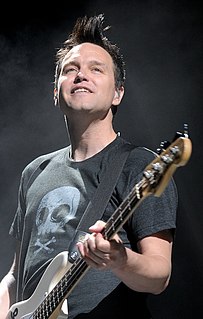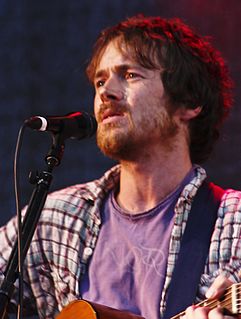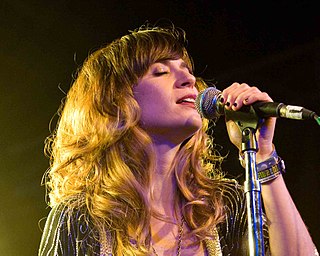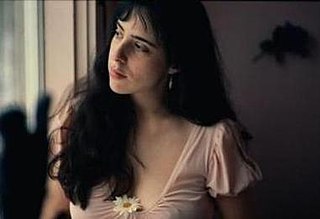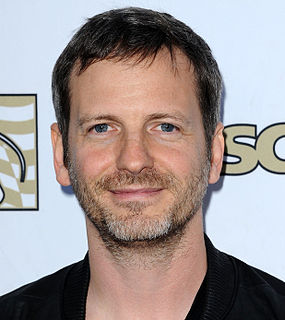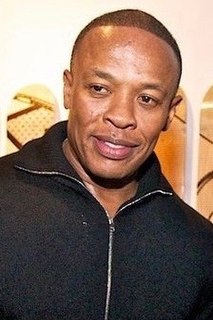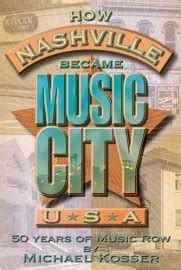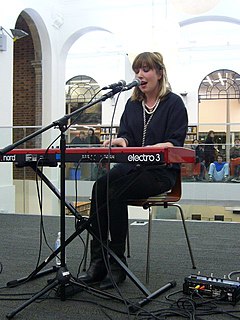A Quote by Mark Hoppus
Every one of those old songs like "What's My Age Again?" and "All the Small Things" is like a tattoo or a scrapbook or an old photograph. There are just songs that define certain moments in your life. Everyone has a song that got them through a bad breakup or they put on and it made them feel like they wanted to go out and kick the world's ass with their friends on a weekend. Those songs still feel like that to me.
Related Quotes
Certain songs have a life, and certain songs don't. A song is like a saddle: you ride it for a while, and if it's the right kind of song you can sing it for the rest of your life. And then other songs are only really important for certain periods of your life, and you move on from them and find yourself not necessarily needing to sing them anymore.
And I thought about how many people have loved those songs. And how many people got through a lot of bad times because of those songs. And how many people enjoyed good times with those songs. And how much those songs really mean. I think it would be great to have written one of those songs. I bet if I wrote one of them, I would be very proud. I hope the people who wrote those songs are happy. I hope they feel it's enough. I really do because they've made me happy. And I'm only one person.
I'm always interested in hearing how other people read and react to my songs. I hadn't thought of it in just that way. One of the things I love about doing things that are creative is that I feel like it's my right as an artist not to be affected by the reactions of those people that are going to hear my songs. But I also feel like it's the right of the people hearing them to have their own interpretations of what these songs mean. Sometimes people will see things that I don't see.
Those situations were just taking over my entire life. It was fun to write in a way, because it helped me take a really bad situation and a really sad situation and make beautiful songs out of them. When I got half of the song written it was like, "Oh, this is great." It was like the one thing that was making me happy again.
There are no limitations with a song. To me a song is a little piece of art. It can be whatever you like it to be. You can write the simplest song, and that's lovely, or you can just write a song that is abstract art. ... A lot of my songs are very serious, I'm like dead serious about certain things and I feel that I'm writing about the world, through my own eyes. ... I have a love for simple basic song structure, although sometimes you'd never know it. ... Most of the songs I wrote at night. I would just wake in the middle of the night. That's when I found the space to write.
I made songs really for myself - I didn't ever expect to put it out there and make this a record for mass consumption, this was really just a way for me to get out of my own situation and reclaim that part of myself - so when making the songs, I wanted a testament to what I'd gone through, I wanted a snapshot of those moments.
Here's some free advice; like the folkies of yore, you need to be not just a writer of songs, you need to be a lover of songs, a listener of songs and a collector of songs. If you hear a song in a club that knocks you out or you hear an old recording of a great song you never knew existed, it does not diminish you to record it; it actually exalts you because you have brought a great song from obscurity to the ear of the public.
I wanted to try to make songs that worked as songs, not just as productions. People wanted me to do a solo acoustic session, they were like "Can you play song on the piano?" and I was like "Not really. It doesn't really work." I wanted to write songs that would work in a variation of instrumentation.
Often for me, if I hear a song I know, it clicks for me and I hear it in a different way and I think, "I could sing that song. I've got something to say about that song. Wanting to connect with an audience and wanting them to rethink songs; it is actually important to do songs they're familiar with. Also, I love those songs. In a way, I think I've changed people's perceptions of what a cabaret show like this could be.
